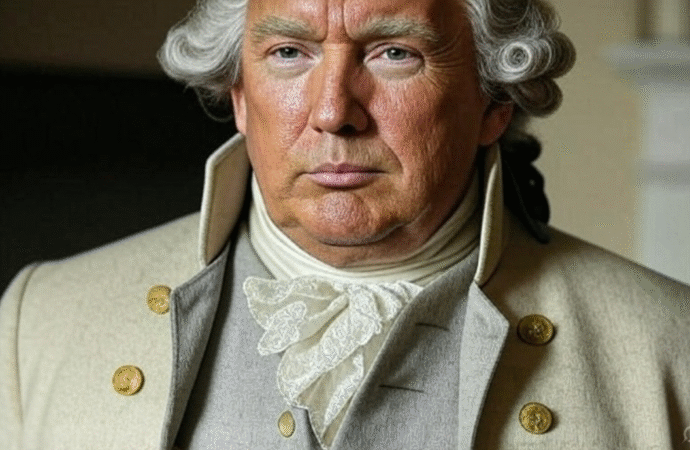For decades, America has intervened in the affairs of countries around the world. Many of these military and economic actions have been driven by alliances, so-called friendships between nations, and calls for “regime change.” Rightfully so, the American people are questioning the benefits.
Since the end of the Cold War, we’ve seen American military action in Kuwait, Somalia, Bosnia, Iraq, Serbia, Afghanistan, Iraq (again), Libya, Syria, and countless other countries on a smaller scale.
Indeed, for 20 years, we poured blood and treasure into Afghanistan. Aside from capturing Osama bin Laden in the wake of 9/11, the stated goals of our foreign policy elite were to eliminate the Taliban and build a new Afghanistan, rooted in democracy and safe for the world.
How did it turn out? We pulled out in 2021 after losing thousands of good soldiers with many thousands more suffering from wounds and PTSD, left behind tens of billions in military equipment, and the Taliban are back in charge using that same American equipment to assert their hold on power. Iraq isn’t much better.
Despite these failures, America is now involved in Ukraine, spending hundreds of billions of dollars while also providing military equipment and support in a proxy war against Russia.
As if that isn’t enough, our foreign policy elite are calling for us to attack Iran in defense of Israel, who they often refer to as “our greatest ally.” Meanwhile, over the horizon lingers the issue of Taiwan and China.
What would the American founders think of contemporary America’s military involvement in nearly every region of the world? More specifically, what would our first president, George Washington, think of it all?
Thankfully, he left us a sage document, known as “Washington’s Farewell Address,” with his advice for America.
As you read these brief extracts, remember that the world appeared no less dangerous in Washington’s time. The American Colonies had just fought an eight-year war for independence from Great Britain, one of the greatest military powers in the world – a nation that could project power through its naval forces in far-off lands and had the very best equipment at the time. European nations were the envy of the world, and the Ottomans were a force to be reckoned with.
Perhaps the most important point to consider is Washington’s view of America’s geographic isolation. We have two oceans separating us from the global powers in Europe, the Middle East, and Asia. We have weak neighbors to the north and south. And, finally, our nation is rich in natural resources, including her people.
In our isolation, Washington saw the opportunity for our country to flourish, free from the conflicts of bordering nations and the age-old rivalries and blood-feuds of the Old World.
As Washington writes:
Why forgo the advantages of so peculiar a situation? Why quit our own to stand upon foreign ground? Why, by interweaving our destiny with that of any part of Europe, entangle our peace and prosperity in the toils of European ambition, rivalship, interest, humor, or caprice?
Can the same not be said of the toils of the Middle East or Asia?
Of favored nations, Washington adamantly warns us that it is the path to slavery:
[N]othing is more essential than that permanent, inveterate antipathies against particular nations and passionate attachments for others should be excluded and that in place of them just and amicable feelings towards all should be cultivated. The nation which indulges towards another in habitual hatred, or in habitual fondness, is in some degree a slave.
It is a slave to its animosity or to its affection, either of which is sufficient to lead it astray from its duty and its interest. Antipathy in one nation against another disposes each more readily to offer insult and injury, to lay hold of slight causes of umbrage, and to be haughty and intractable when accidental or trifling occasions of dispute occur. Hence frequent collisions, obstinate, envenomed, and bloody contests.
He continues quite strongly on this point. In reading, many readers may consider our attachments to countries such as Israel and Great Britain, or our decades-long animosity towards Russia, Iran, or Iraq.
[A] passionate attachment of one nation for another produces a variety of evils. Sympathy for the favorite nation, facilitating the illusion of an imaginary common interest in cases where no real common interest exists and infusing into one the enmities of the other, betrays the former into a participation in the quarrels and wars of the latter, without adequate inducement or justification. It leads also to concessions to the favorite nation of privileges denied to others, which is apt doubly to injure the nation making the concessions, by unnecessarily parting with what ought to have been retained and by exciting jealousy, ill will, and a disposition to retaliate in the parties from whom equal privileges are withheld.
And it gives to ambitious, corrupted, or deluded citizens (who devote themselves to the favorite nation) facility to betray or sacrifice the interests of their own country without odium, sometimes even with popularity, gilding with the appearances of a virtuous sense of obligation, a commendable deference for public opinion, or a laudable zeal for public good, the base or foolish compliances of ambition, corruption, or infatuation.
As avenues to foreign influence in innumerable ways, such attachments are particularly alarming to the truly enlightened and independent patriot. How many opportunities do they afford to tamper with domestic factions, to practice the arts of seduction, to mislead public opinion, to influence or awe the public councils! Such an attachment of a small or weak towards a great and powerful nation dooms the former to be the satellite of the latter.
Washington isn’t done in his admonition.
Against the insidious wiles of foreign influence (I conjure you to believe me, fellow citizens) the jealousy of a free people ought to be constantly awake, since history and experience prove that foreign influence is one of the most baneful foes of republican government.
And he admits that once foreign influence has gained hold in our country that “real patriots,” seeking only the best for America and no other nation, may be painted as the adversary, the enemies of the nation:
Real patriots, who may resist the intrigues of the favorite, are liable to become suspected and odious, while its tools and dupes usurp the applause and confidence of the people to surrender their interests.
One may be easily reminded of Tucker Carlson and other outspoken advocates for American restraint in our current times. Are they not slandered and defamed as spokespersons for the enemies of favored nations?
So, what should American foreign policy look like to Washington? It’s fairly simple. Trade and peace, whenever possible:
The great rule of conduct for us in regard to foreign nations is, in extending our commercial relations, to have with them as little political connection as possible. So far as we have already formed engagements, let them be fulfilled with perfect good faith. Here let us stop.
Alas, in the 20th and 21st centuries, our foreign policy elite have “formed engagements” with more nations than we can count in a vast array of alliances, treaties, and formal or informal agreements of military support.
But our nation is now $37 trillion in debt – something George Washington also warned about. Realistically, we cannot continue to project power and throw hundreds of billions of dollars and ordinance around – not to mention the blood of good Americans – for foreign “ambition, rivalship, interest, humor, or caprice.” Our fiscal reckoning is nearly here, and change will come.
Much is said these days of an “America First” policy. Given the overwhelming victory of Donald Trump who ran on that campaign promise, it’s clear the American people are tired of being “the world’s policeman.”
Americans see that we have bled ourselves out, and for what?
Our nation is crumbling and divided internally, inflation is eating families’ budgets, and war and nation-building is very expensive. Meanwhile, wars and rumors of wars continue globally. There is no end to the ambition of men and the conflicts of nations.
Is it time to heed our first president’s advice to our nation? Is it time to turn away from the idea of favored nations and nation-building to rebuild our own home?
In Washington’s own words, is it time to, “Observe good faith and justice towards all nations; cultivate peace and harmony with all; religion and morality enjoin this conduct, and can it be that good policy does not equally enjoin it”?
—
Image Credit: Grok
18 comments















18 Comments
SCOTT ETHAN
June 19, 2025, 2:28 pmHIRE A PROFESSIONAL HACKER – PROFESSIONAL WIZARD CRYPTO HACKERS TO RESOLVE ANY CRYPTO RELATED ISSUES. Hello, I'm Scott and I am one of the testifiers of PROFESSIONAL WIZARD CRYPTO HACKERS company ever since they saved me from losing my life investment of $73,000 USDT. They took their time to understand my situation, they offered me the best recovery service ever. Their services were invaluable and transparent recovering most part of what I already lost, within few hours of work. They are so good I have already recommended them to some of my friends and family members who were also affected by crypto related issues and it worked for them too. Everything came with vivid evidence to me and ever since, I have had a clear conscience that it's actually possible to get a back a missing crypto asset. I can't say much things about these guys here, but then, if you are faced with any crypto related issues, you can reach out to them for assistance. I have attached the contact details of the company to this thread. Email: [email protected], [email protected] Telegram: https://t.me/professionalwizardcryptohackers
REPLYCoreen Jack@SCOTT ETHAN
June 20, 2025, 1:06 pmGoogle is now paying $300 to $500 per hour for doing work online work from home. Last paycheck of me said that $20537 from this easy and simple job. Its amazing and earns are awesome. No boss, full time freedom and earnings are in front of you. This job is just awesome. Every person can makes income online with google easily….
REPLY.
More Details For Us→→→→ https://Www.EarnApp1.Com
Featherjourney@Coreen Jack
June 23, 2025, 10:56 amI am making a good salary from home $1400-$2400/week , which is amazing, under a year back I was jobless in a horrible economy. I thank God every day I was blessed with these instructions and now it’s my duty to pay it forward and share it with Everyone,
Here is what I do…… https://Www.Cash43.Com
REPLYMadalyn Natasha
June 21, 2025, 3:14 pm"Last night, I worked for just 3 hours and made $12,000 — I still can't believe it! I used to think this stuff was fake, but RichJob2.com completely changed my mind. People are making money there every day — if I can do it, you can too!
REPLYAnna@Madalyn Natasha
June 23, 2025, 12:07 amI get paid over 220 Dollars per hour working from home with 2 kids at home. i never thought i’d be able to do it but my best friend earns over 15k a month doing this and she convinced me to try. it was all true and has totally changed my life. This is what I do, check it out by Visiting Following Website
HERE—————⊃⫸ https://Www.NetPay1.Com
REPLYCarrie Alfred
June 22, 2025, 8:28 amMy husband left me for another woman a few months ago and ever since then my life has been filled with pain and agony because my husband was my first love whom I have spent my entire life with. A friend and also a colleague from work told me he saw some testimonies of a spiritualist called Doctor Muna, he can bring back lover within some few days, Ridiculously, I laughed it out and said I am not interested but for the sake of friendship, she consulted this God sent man on my behalf and to my greatest surprise after 12 hours my husband called me for the very first time for over 7 months saying "I miss you babe and I'm so sorry for everything I made me went through" I couldn't say a word but cried over the phone and hanged up. We are back together and living Happily together again. To be honest, I still can’t believe it, because it’s highly unbelievable. Thank you DOCTOR MUNA for bringing back my love and also to my SELFLESS FRIEND. Laura, who interceded on my behalf. For anyone who might need help of this wonderful spiritualist here is the email address: [email protected], Also add him on WhatsApp: +2347035449257
REPLYLeoVJudd@Carrie Alfred
June 26, 2025, 6:36 amI get paid more than $100 to $500 per hour for working online. I heard about this job 3 months ago and after joining this I have earned easily $20k from this without having online working skills . Simply give it a shot on the accompanying site…
REPLYHere is I started.…………>> https://Www.joinSalary.Com
Carrie Alfred
June 22, 2025, 8:43 amMy husband left me for another woman a few months ago and ever since then my life has been filled with pain and agony because my husband was my first love whom I have spent my entire life with. A friend and also a colleague from work told me he saw some testimonies of a spiritualist called Doctor Muna, he can bring back lover within some few days, Ridiculously, I laughed it out and said I am not interested but for the sake of friendship, she consulted this God sent man on my behalf and to my greatest surprise after 12 hours my husband called me for the very first time for over 7 months saying "I miss you babe and I'm so sorry for everything I made me went through" I couldn't say a word but cried over the phone and hanged up. We are back together and living Happily together again. To be honest, I still can’t believe it, because it’s highly unbelievable. Thank you DOCTOR MUNA for bringing back my love and also to my SELFLESS FRIEND. Laura, who interceded on my behalf. For anyone who might need help of this wonderful spiritualist here is the email address: [email protected], Also add him on WhatsApp: +2347035449257
REPLYBrad Smitchell
June 24, 2025, 12:29 amCybersecurity experts may ethically monitor social media and mobile devices in limited circumstances to protect individuals from threats, exploitation, or to aid criminal investigations, and to safeguard organizations by preventing data loss, ensuring regulatory compliance, responding to incidents, or combating malware. Monitoring can also enhance public safety through threat intelligence or fighting serious cybercrime. However, such actions are only ethical with strict safeguards, including explicit consent, transparency, proportionality in data collection, data minimization, secure storage, legal compliance, and robust oversight. Without these, monitoring risks becoming unethical and may infringe on privacy or legal boundaries.
REPLYGuard Your Digital World With Innovative Tech!
Do you require social media access, a phone hack, email breach or website security fix?
OR
Do you simply wish to recover lost crypto funds, detect/track a location or carry out data alterations?
Our Elite cybersecurity services cover everything from result upgrades to clearing debts and fixing credit. For Unparalleled security and reliable results, choose the best in the business.
For further assistance, contact [email protected] or +1 862-660-2702 or Telegram: cyberhelpdesk00